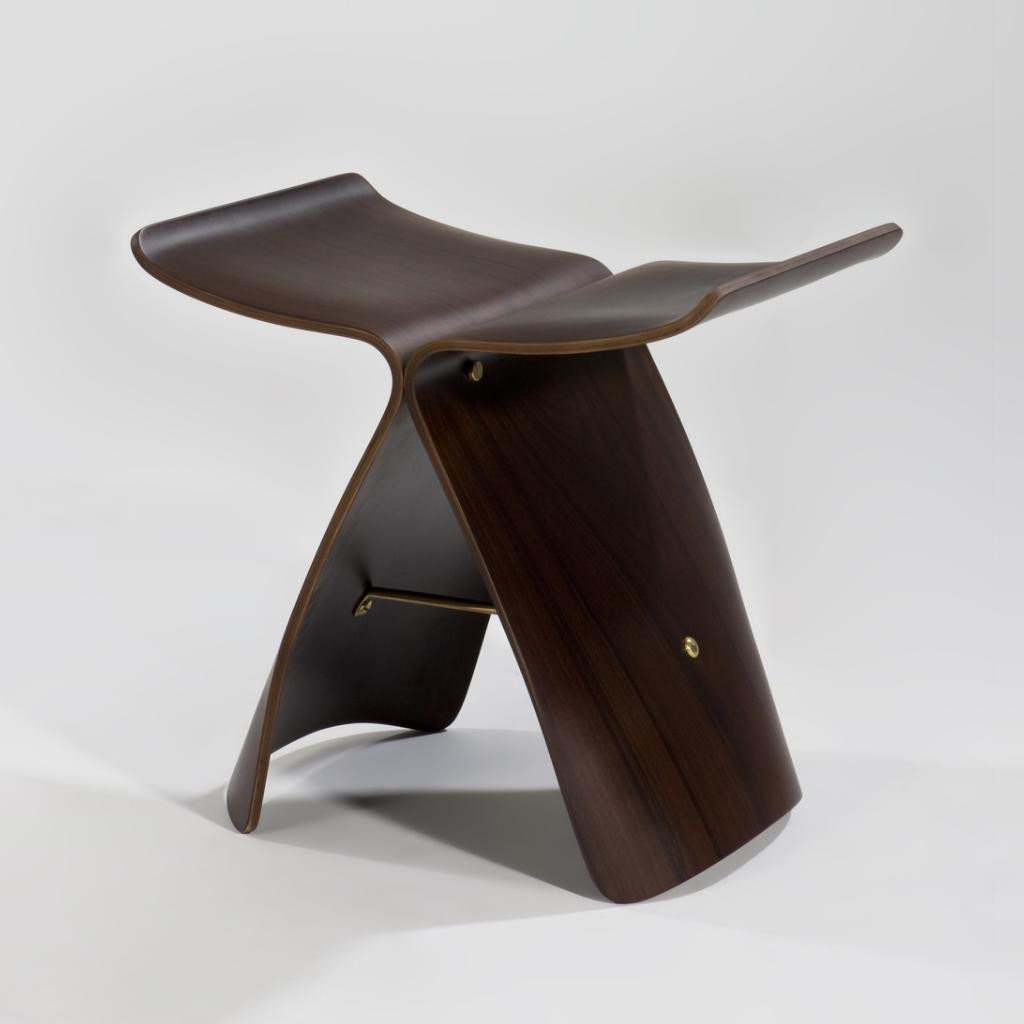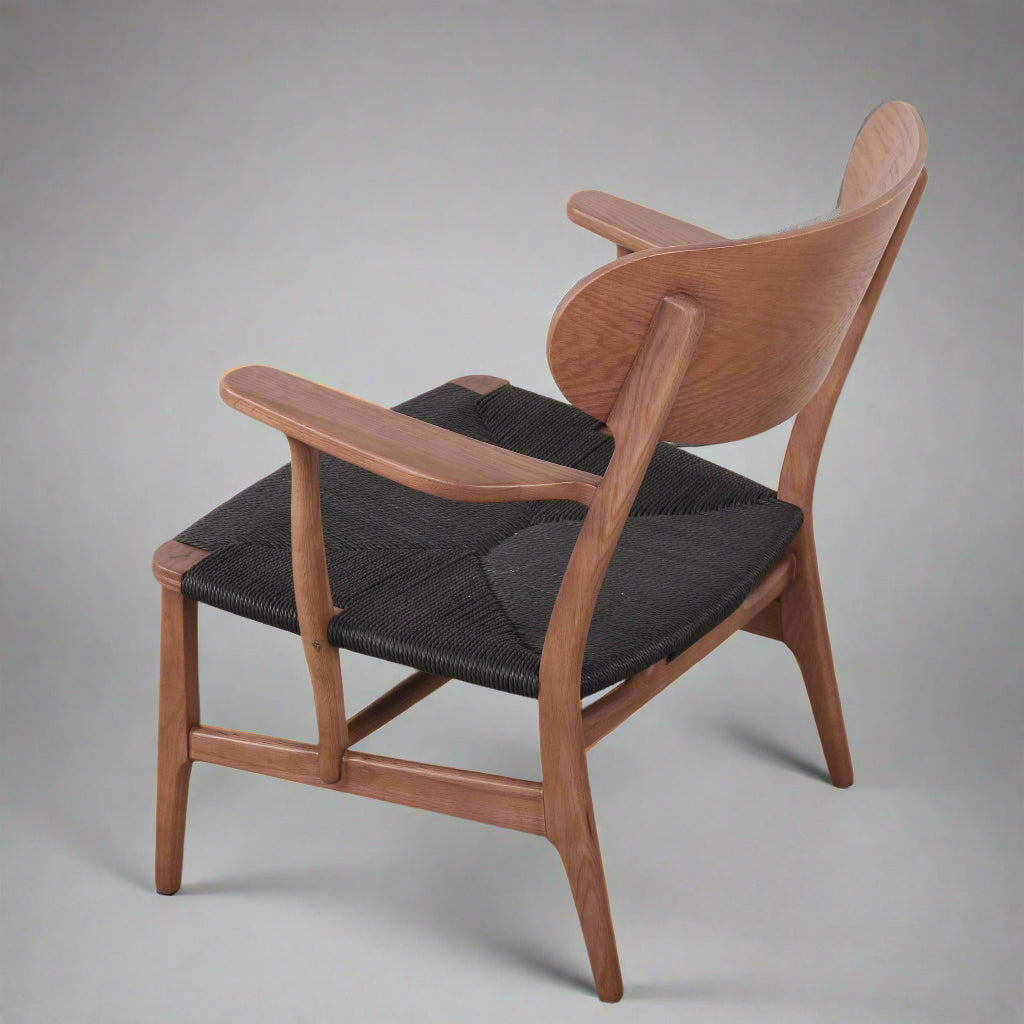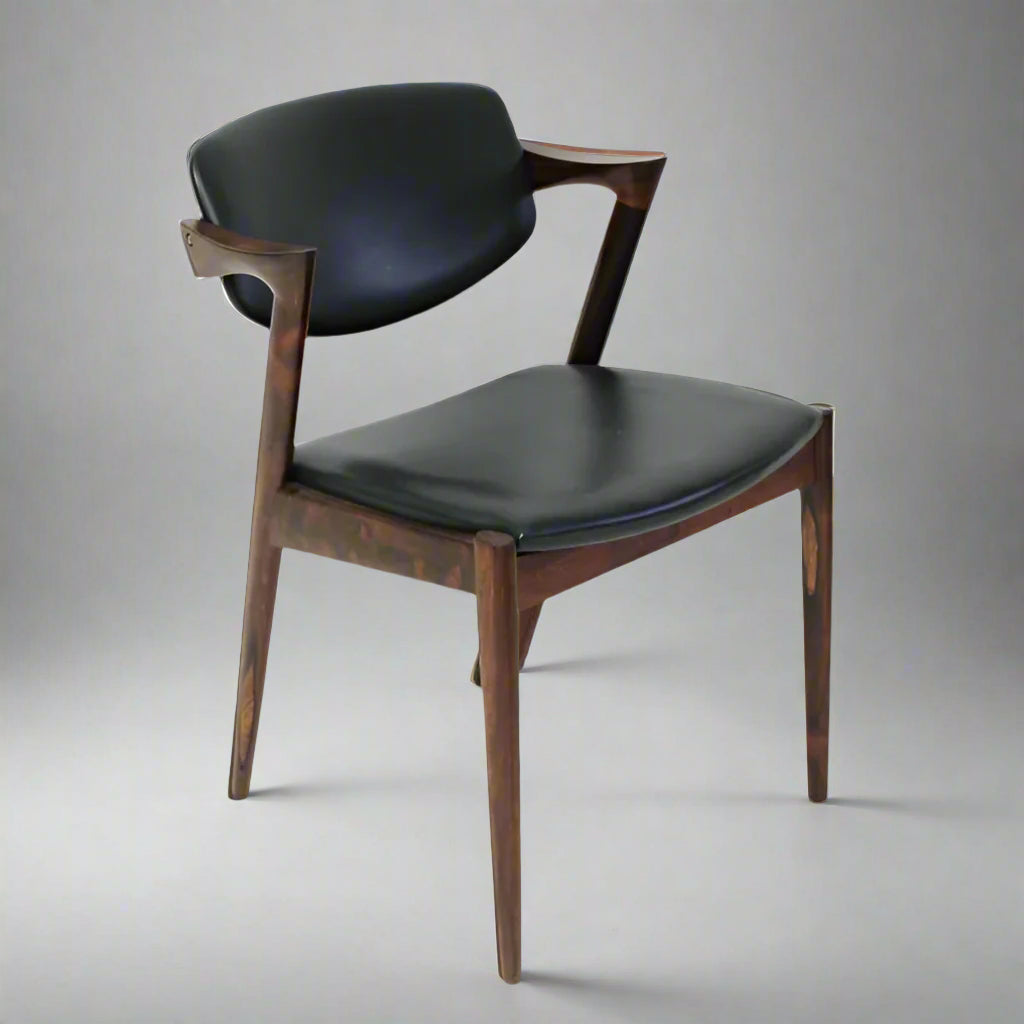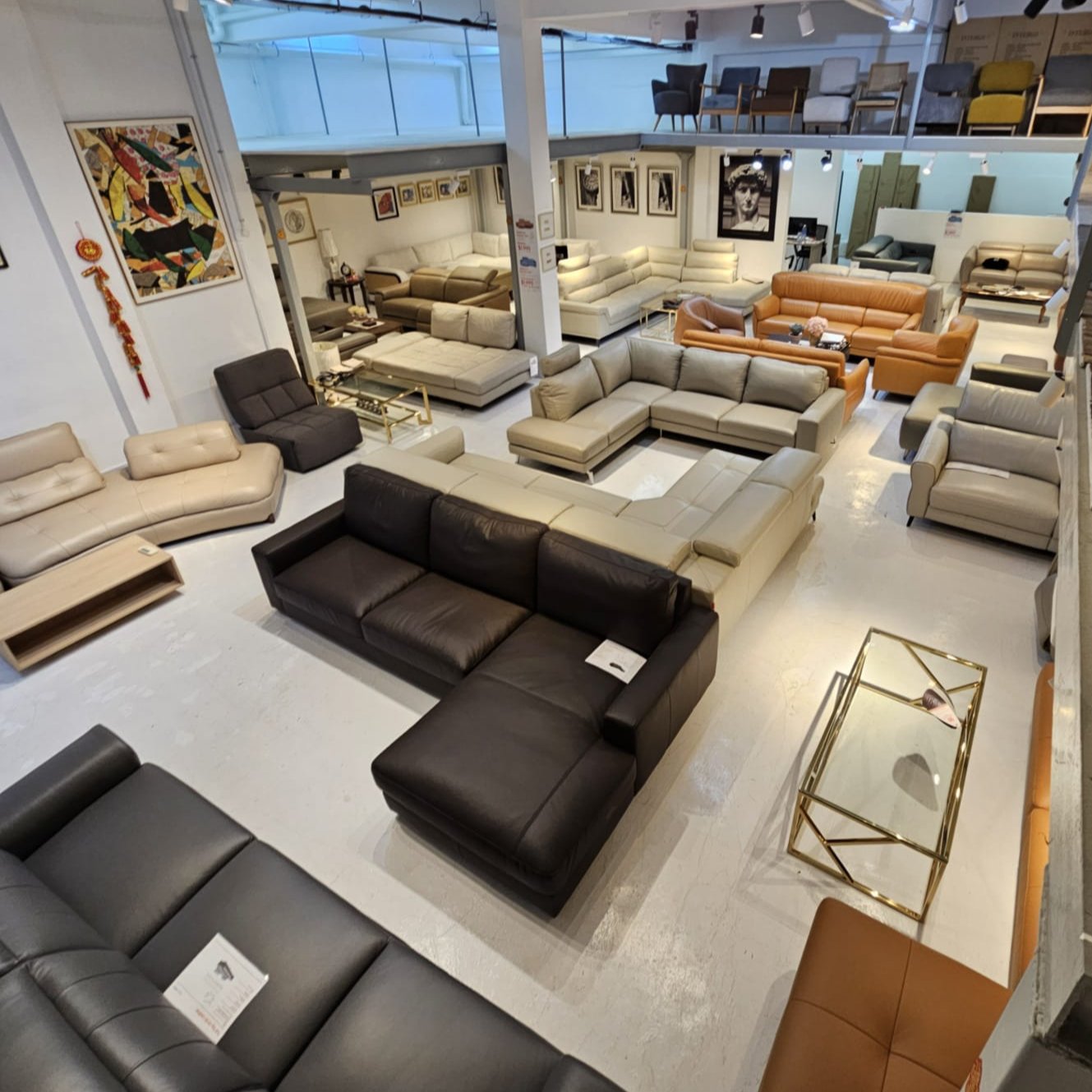Sori Yanagi was the son of Soetsu Yanagi, who founded the mingei (folk craft) movement in Japan in the late 1920s-1930s. An artist, Sori Yanagi trained in industrial design and was a pioneer figure in the modern Japanese design movement. He was employed in Charlotte Perriand’s studio in Paris, where he learnt about European modernism. Yanagi cofounded the Japanese Industrial Designers Association in 1952 and in the same year, opened his design studio in Tokyo.
He conflated Japanese tradition with modern western design precepts such as in his most memorable design- the Butterfly Stool (1956), which displays overt Japanese aesthetics and is an achievement in molded plywood. It possesses an elegant tactile quality and the rippled seat and base are reminiscent of the roofs of Japanese temples. The beautiful grain of the rosewood is showcased and further accentuated by the stool’s simple 2-piece form that resembles a butterfly’s open wings. The shape of the butterfly stool has also been likened to that of a Shinto shrine gateway or that of an antique samurai helmet. Yanagi’s butterfly stool is a new form that was birthed from a marriage of old and new, and Western and Japanese ideas The stool is featured in the Museum of Modern Art in New York.
His works reflect Yanagi’s way of thinking: “True beauty is not made, it is born naturally.”














